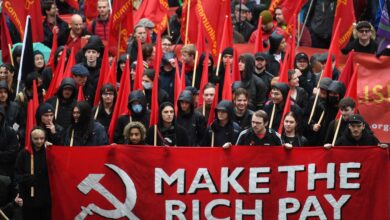The Chinese Communist Party’s great capitalist experiment

By Victor Escribano
Shanghai, China, Jun 25 (EFE).- “No matter if it is a white cat or a black cat; as long as it can catch mice, it is a good cat.” This quote from Deng Xiaoping, China’s leader between the late 1970s early ’90s, characterizes the country’s economic shift in recent decades.
It was under his rule that the term “Socialism with Chinese characteristics” was popularized to define the new socio-political model in the People’s Republic, which aimed to preserve the Marxist-Leninist and Maoist values of the Communist Party while selectively adopting elements of market economics.
After decades of absolute state control and planned economy, a system that led to millions of deaths during the Great Leap Forward, Deng established a new chapter in 1978 in China’s economy on the basis of reform and opening up.
“Starting from a virtually purely planned economy, fundamentally (through) State-owned enterprise, it has now probably become a mixed economy,” Xiang Bing, founding dean at the Cheung Kong Graduate School of Business told EFE. “The market definitely plays a very important role allocating resources, but not as much as you see in the United States yet.”
“Forty years ago, the government decided the price of almost everything. Today the market decides the price of 97 percent of goods and services,” said Ether Yin, analyst at consulting firm Trivium China. “Forty years ago, there were barely any private businesses in the country. Today, 90 percent of companies are private. They contribute 60 percent of GDP and provide 80 percent of jobs.”
Xiang said this economic shift has turned China into a capitalist nation.
“China and the US have embraced capitalism probably better than any other country on Earth,” he told EFE. “China used a combination of neoliberalism and state capitalism to generate this extraordinary economic growth for the past three or four decades.”
“One reason why China has done well is because it has adopted so many elements from so many directions. To me, China is a hotbed for fusion,” he said.
Xiang said neoliberalism, rather than state capitalism, explains China’s economic success, adding that China could learn from the kind of welfare state socialist policies in Western Europe, typified by Nordic countries.
“In China, we don’t have universal health care. We don’t have a universal pension system. China needs to learn socialism from Europe,” he said.
Despite the capitalist experiment, the legacy of Soviet and Maoist communism lives on in China’s economic system, with economic agendas still revolving around five years plans and state-owned enterprises maintaining huge strategic influence.
Mao Zedong, founder of the People’s Republic of China in 1949, and leader of the country until his death in 1976, remains an iconic figure.
“Chairman Mao’s writing has always been viewed very highly by some of the top companies in China,” Xiang said. “It has a huge impact on many of these iconic entrepreneurs in China.”
Looking ahead, Xiang sees private companies as having a more important role in the development of the Chinese economy.
“You look at newly emerged large scale companies and newly minted billionaires, if you use that as a measure of economic disruption, China has outperformed any other economy on Earth,” he said. EFE
vec/jot/lds





